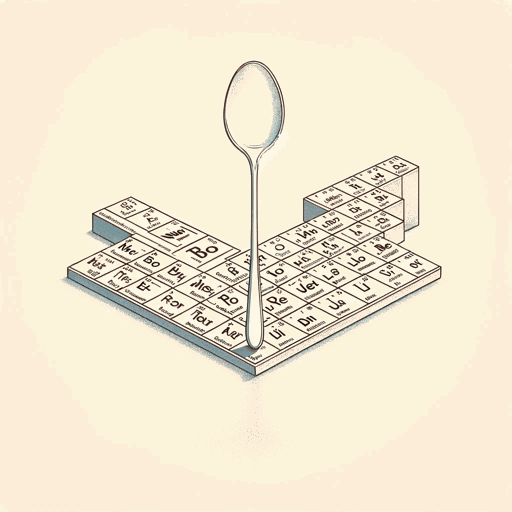93 pages • 3 hours read
Sam KeanThe Disappearing Spoon: And Other True Tales of Madness, Love, and the History of the World from the Periodic Table
Nonfiction | Book | Adult | Published in 2010A modern alternative to SparkNotes and CliffsNotes, SuperSummary offers high-quality Study Guides with detailed chapter summaries and analysis of major themes, characters, and more. For select classroom titles, we also provide Teaching Guides with discussion and quiz questions to prompt student engagement.
Introduction
The Disappearing Spoon: And Other True Tales of Madness, Love, and the History of the World from the Periodic Table of the Elements
- Genre: Nonfiction; science
- Originally Published: 2010
- Reading Level/Interest: Grades 10-12; college/adult
- Structure/Length: Introduction, 5 parts; approx. 416 pages; approx. 12 hours, 34 minutes on audio
- Central Concern: In an exploration of history through the elements on the periodic table, Sam Kean fuses science and lore in stories of history, finance, the arts, and medicine. He shows how these chemical elements affected the people who discovered them in a way that appeals to non-chemists and scientists alike.
- Potential Sensitivity Issues: Chemical warfare
Sam Kean, Author
- Bio: American New York Times bestselling nonfiction author; born in Sioux Falls, South Dakota; studied physics and English literature at University of Minnesota; earned a master’s degree in library science from Catholic University of America; published in The New York Times, Mental Floss, Slate, and The New Scientist; editor of the 18th edition of The Best American Science and Nature Writing
- Other Works: The Violinist’s Thumb: And Other Lost Tales of Love, War, and Genius, as Written by Our Genetic Code (2012); The Tale of the Dueling Neurosurgeons: The History of the Human Brain as Revealed by True Stories of Trauma, Madness, and Recovery (2014); Caesar’s Last Breath: Decoding the Secrets of the Air Around Us (2017); The Icepick Surgeon: Murder, Fraud, Sabotage, Piracy, and Other Dastardly Deeds Perpetrated in the Name of Science (2021)
- Awards: Amazon’s top science book of the year (2010); Royal Society of London’s book of the year runner-up (2010)

